Intellectual disability
Recent articles
Impaired molecular ‘chaperone’ accompanies multiple brain changes, conditions
Rare genetic variants in a protein-folding complex contribute to a spectrum of phenotypes that encompass brain malformations, intellectual disability, autism and seizures, according to a new “hallmark” study.
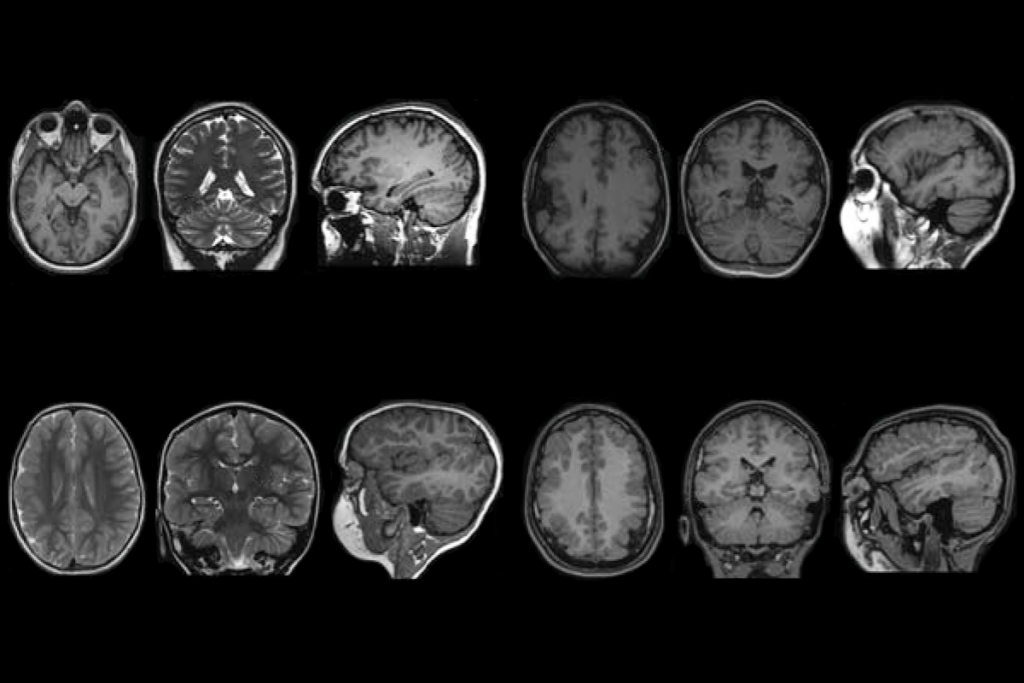
Impaired molecular ‘chaperone’ accompanies multiple brain changes, conditions
Rare genetic variants in a protein-folding complex contribute to a spectrum of phenotypes that encompass brain malformations, intellectual disability, autism and seizures, according to a new “hallmark” study.
New catalog charts familial ties from autism to 90 other conditions
The research tool reveals associations stretching across three generations.
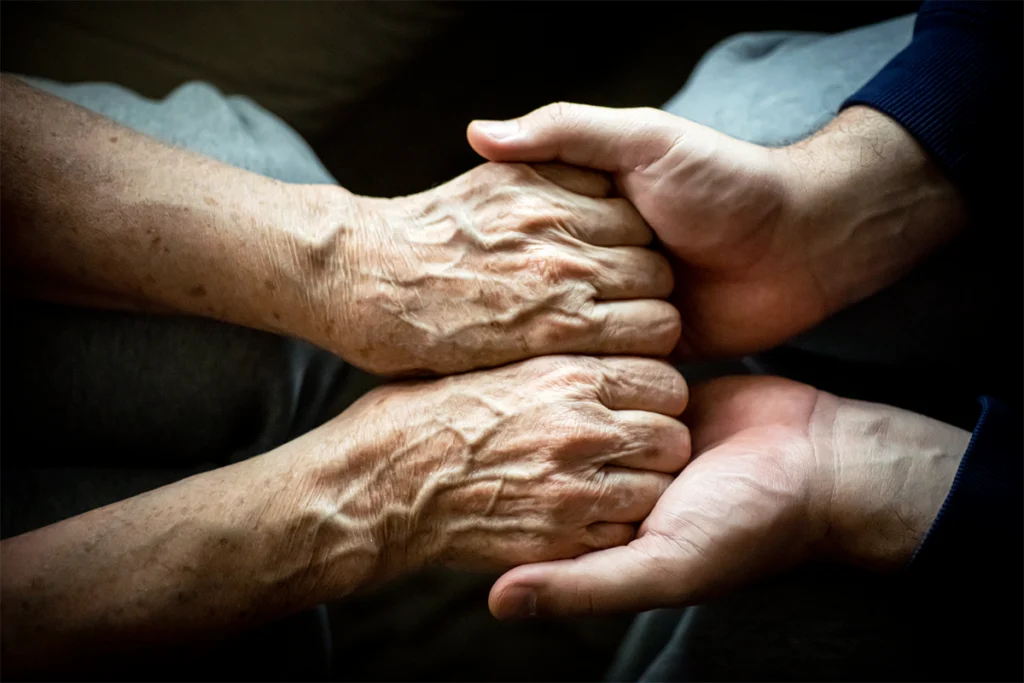
New catalog charts familial ties from autism to 90 other conditions
The research tool reveals associations stretching across three generations.
A genetics-first clinic for catching developmental conditions early: Q&A with Jacob Vorstman
A new clinic is assessing children who have a genetic predisposition for autism and other neurodevelopmental conditions—sometimes before traits appear.

A genetics-first clinic for catching developmental conditions early: Q&A with Jacob Vorstman
A new clinic is assessing children who have a genetic predisposition for autism and other neurodevelopmental conditions—sometimes before traits appear.
Pinning down ‘profound autism’ for reliable research: Q&A with Matthew Siegel
A clear and actionable definition for the term could enhance research and improve care, Matthew Siegel says.

Pinning down ‘profound autism’ for reliable research: Q&A with Matthew Siegel
A clear and actionable definition for the term could enhance research and improve care, Matthew Siegel says.
Autism-linked perturbations converge on cell skeleton and RNA-binding proteins
The findings solidify the idea that autism-linked mutations affect brain activity by way of several key shared mechanisms.
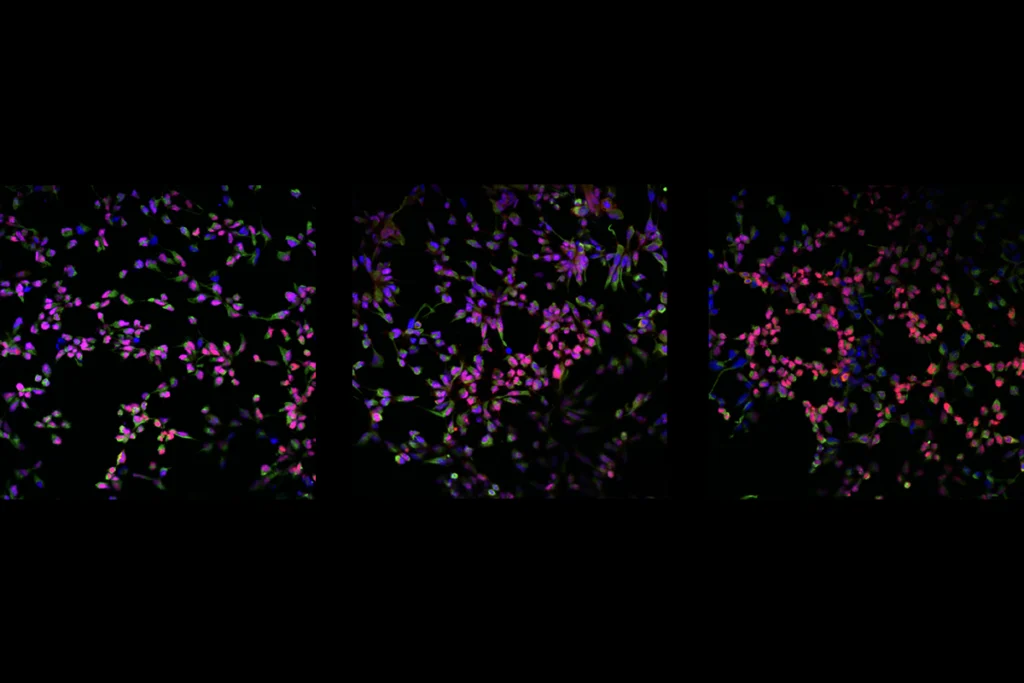
Autism-linked perturbations converge on cell skeleton and RNA-binding proteins
The findings solidify the idea that autism-linked mutations affect brain activity by way of several key shared mechanisms.
SYNGAP1 findings illuminate links between mutations, intellectual disability
New mouse models join several studies that could point to novel therapeutic approaches.
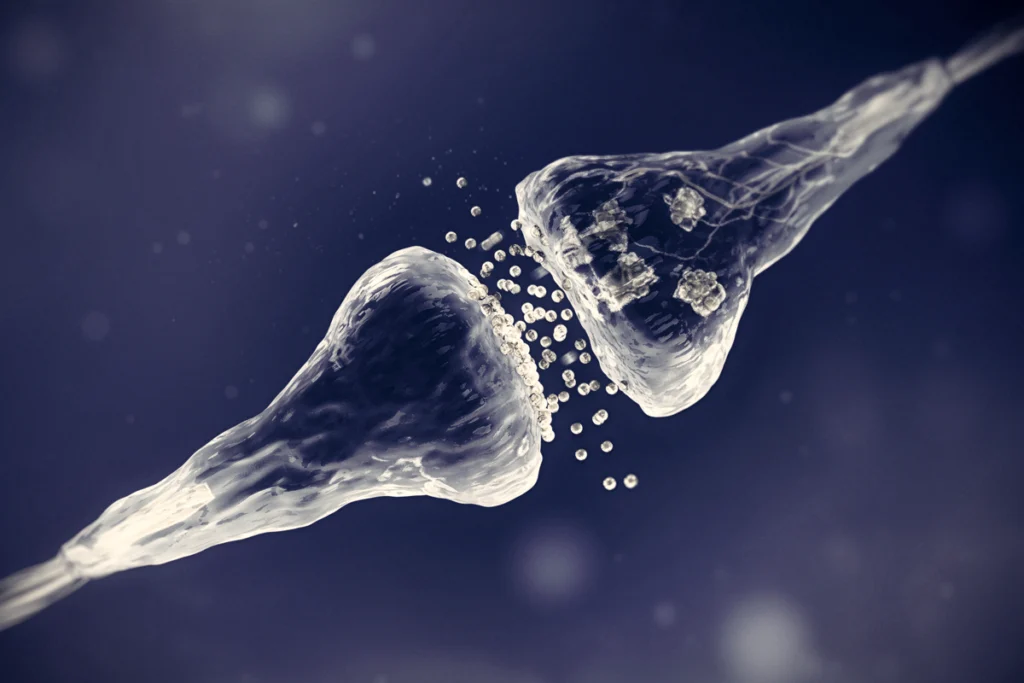
SYNGAP1 findings illuminate links between mutations, intellectual disability
New mouse models join several studies that could point to novel therapeutic approaches.
Autism research hits the road
Some scientists are thinking creatively about how to collect data in flexible environments and meet communities where they’re at.
Autism research hits the road
Some scientists are thinking creatively about how to collect data in flexible environments and meet communities where they’re at.
Journal club: Why do some children lose their autism diagnosis?
More than one-third of a cohort of autistic toddlers no longer meet criteria for the condition at school age, according to a new study, but the findings may not generalize because the cohort is predominantly white and affluent.
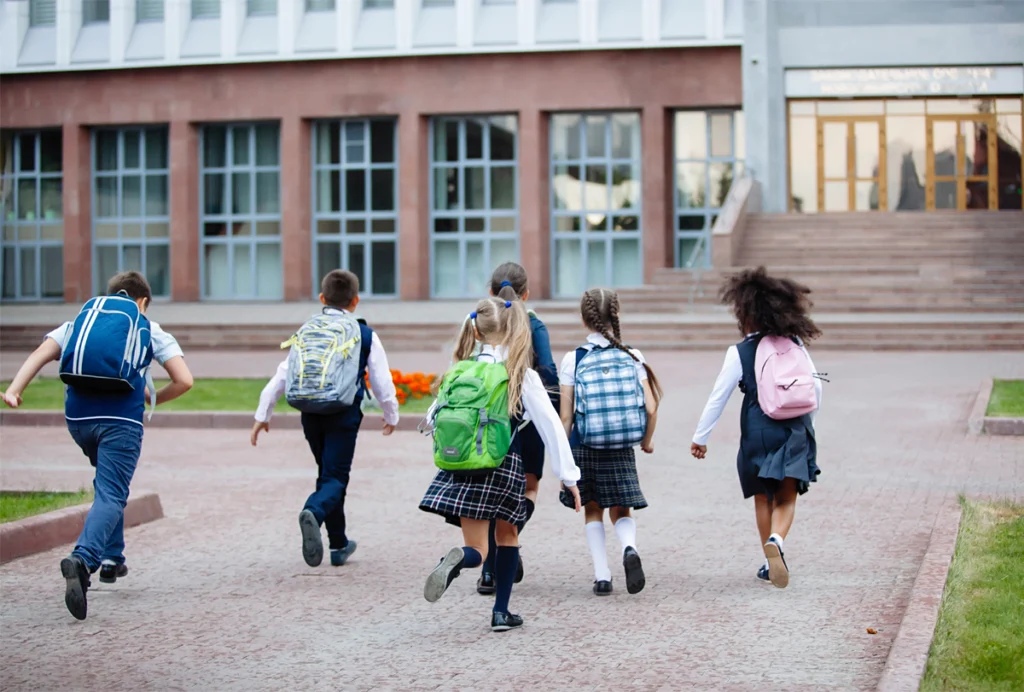
Journal club: Why do some children lose their autism diagnosis?
More than one-third of a cohort of autistic toddlers no longer meet criteria for the condition at school age, according to a new study, but the findings may not generalize because the cohort is predominantly white and affluent.
‘Emergent and transactional’: How Jonathan Green is rethinking autism and interventions
The experienced clinician discusses writing his recent paper, and its reception in the field.
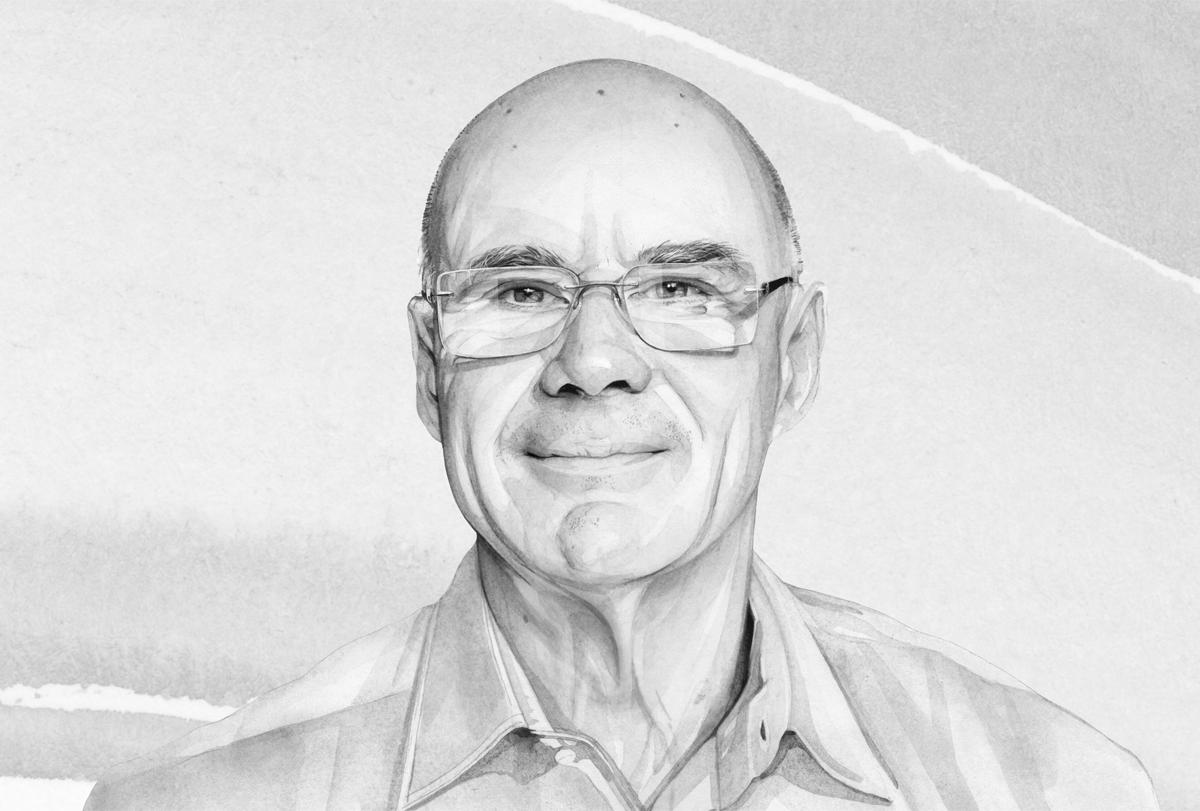
‘Emergent and transactional’: How Jonathan Green is rethinking autism and interventions
The experienced clinician discusses writing his recent paper, and its reception in the field.
Some who lack autism diagnosis carry variants tied to the condition
The variants are associated with slight differences in measures of intelligence, income and employment, but the relationship may not be causal.

Some who lack autism diagnosis carry variants tied to the condition
The variants are associated with slight differences in measures of intelligence, income and employment, but the relationship may not be causal.
Explore more from The Transmitter
As federal funders desert mentorship programs for marginalized students, trainee-led initiatives fill the gap
Grassroots organizations, led by graduate students and postdoctoral researchers, are stepping up to provide neuroscience career training and guidance for students from marginalized backgrounds—and they need your support.

As federal funders desert mentorship programs for marginalized students, trainee-led initiatives fill the gap
Grassroots organizations, led by graduate students and postdoctoral researchers, are stepping up to provide neuroscience career training and guidance for students from marginalized backgrounds—and they need your support.
Split gene therapy delivers promise in mice modeling Dravet syndrome
The new approach overcomes viral packaging limitations by delivering SCN1A piecemeal and stitching it together in target cells.

Split gene therapy delivers promise in mice modeling Dravet syndrome
The new approach overcomes viral packaging limitations by delivering SCN1A piecemeal and stitching it together in target cells.
U.S. human data repositories ‘under review’ for gender identity descriptors
Researchers associated with the repositories received an email from the U.S. National Institutes of Health in March noting that they must comply with a 20 January executive order from President Trump that recognizes only two sexes: male and female.
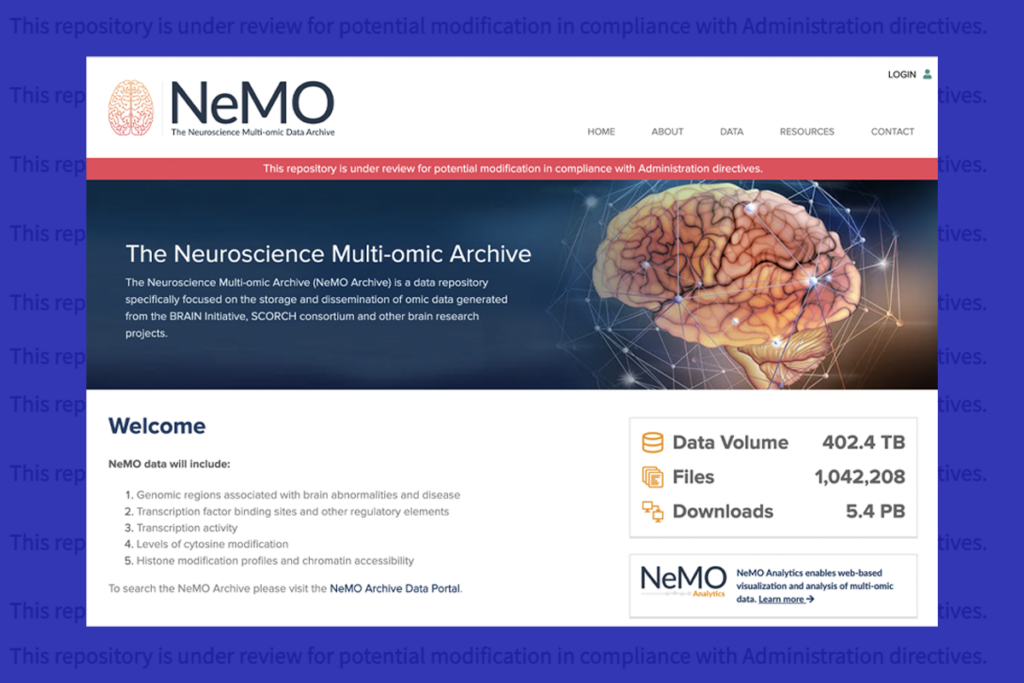
U.S. human data repositories ‘under review’ for gender identity descriptors
Researchers associated with the repositories received an email from the U.S. National Institutes of Health in March noting that they must comply with a 20 January executive order from President Trump that recognizes only two sexes: male and female.